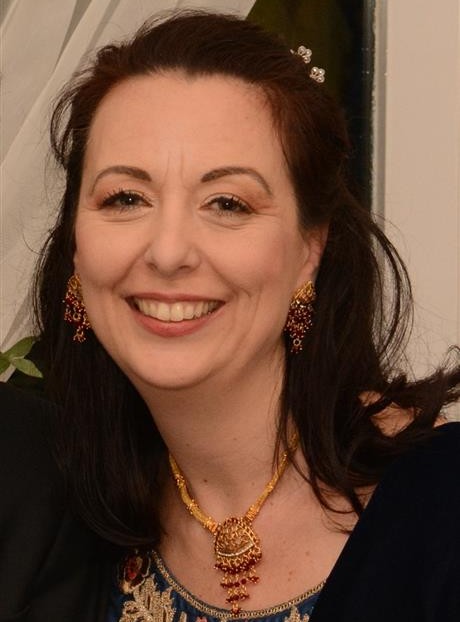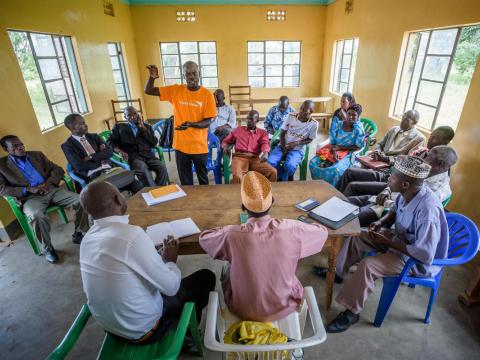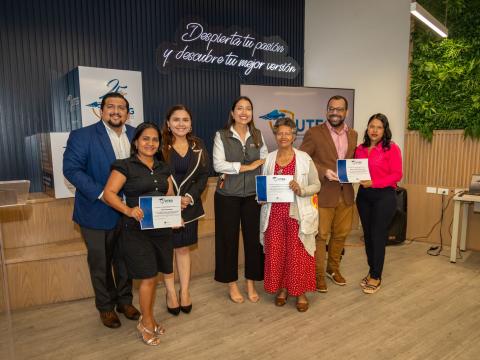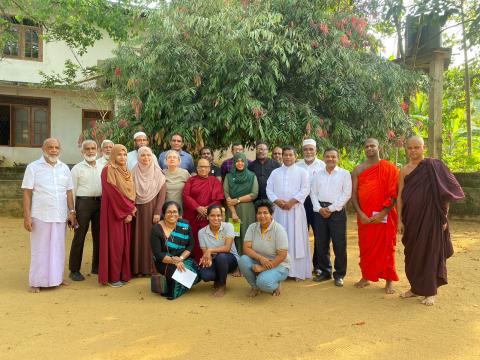
Faith as Framework: Integrating Intangibles into Humanitarian Programming
Dr Kathryn Kraft, Global Research Technical Director, provides insight about how Faith-based intangibles—like spiritual resilience, moral authority, and empathy—are powerful yet often overlooked drivers of peacebuilding. She reflects on how integrating these unseen forces into humanitarian programming can deepen impact and foster more authentic, community-rooted change, especially in humanitarian responses.
In humanitarian work, we often focus on tangible interventions—food distribution, education, policy reform. But what if the most transformative elements are the ones we can’t measure?
Over the past two and a half years, World Vision and a group of partners convened by the University of Leeds have conducted research to explore the role of “intangibles”—spiritual and theological dynamics—in peacebuilding. The exercise included conducting Do No Harm for Faith Groups (DNH4FG) workshops in Burundi, Sri Lanka and the Philippines.
As a Christian humanitarian, this research helped me reflect on my own faith and experiences. Having spent years working in places marked by violence, poverty, and instability, I did it all - from distributing aid to developing educational programmes to facilitating dialogue. The research findings compelled me to rethink - if I really did it all? I hardly ever prayed for peace. Was it because I sub-consciously believed our NGO solutions were more effective than what God could do?
In the humanitarian sector, we thrive on planning, logical frameworks, and theories of change while strategizing on rolling out peacebuilding programmes. But at the same time, do we make room to consider the belief in unseen forces at work and engage with the intangibles of peacebuilding more intentionally?
What are the intangibles of peacebuilding?
We define these intangibles as spiritual, theological, and cosmological beliefs or experiences that shape how people interpret their reality. They’re not measurable, but ignoring them risks missing what truly drives change. For faith actors, knowing the principles of Do No Harm is a key component for peace building and conflict resolution, especially in communities that are polarised by religion.
Working alongside local faith leaders helped us appreciate these intangibles because, across the board, faith leaders didn’t separate their spiritual lives from their peacebuilding work. As a participant in Burundi expressed, her faith is a source of strength and purpose: “God is with me and He will protect me… In everything I do, I must pray to the Lord to give me the strength to help others, not only to support them in finding solutions, but also to guide me through my own challenges.”
Her prayer reflects a profound intersection of faith and resilience. It is a prayer that sustains countless women across crisis-affected regions. Leaders who, despite facing suffering themselves, serve as pillars of their communities. In humanitarian response, we often focus on logistics, funding gaps, and policy frameworks. But behind every data point is a story like hers, a reminder that spiritual resilience is a force. An intangible that should not be treated like a footnote.
The invisible ties of faith: what connects us all
Our research identified four expressions of intangibles that are common across faiths:
Trusting in a Higher Power
In times of crisis, people turn to prayer and religious rituals to actively engage with something beyond themselves. Faith offers not just answers, but a safe space to wrestle with doubt. This trust is not passive—it’s active and sustaining. It helps people make sense of suffering, find hope in chaos, and build community. In humanitarian settings, where trauma and uncertainty are constant, acknowledging this spiritual engagement can deepen our understanding of resilience and how change happens.
Acknowledging the authority of Religious Leaders
Religious leaders are more than influencers. Many feel divinely called to serve, which gives their leadership moral weight and deep commitment. Humanitarians should engage these leaders not just as partners, but as moral anchors in their communities. Their authority is not just social—it’s spiritual, rooted in a sense of calling that transcends professional roles.
As one Filipino participant expressed, “I was placed here because there is an important mission that God wants me to do for the good of my fellow.”
This sentiment reflects a deep sense of purpose and spiritual calling that continues to inspire many in humanitarian work. It is this sense of purpose that drives their dedication and shapes how they lead. It also explains why communities trust them deeply, especially in times of crisis. To build more authentic and sustainable partnerships, humanitarians need to truly recognise the authority religious leaders possess and learn how it can be utilised for peacebuilding efforts.
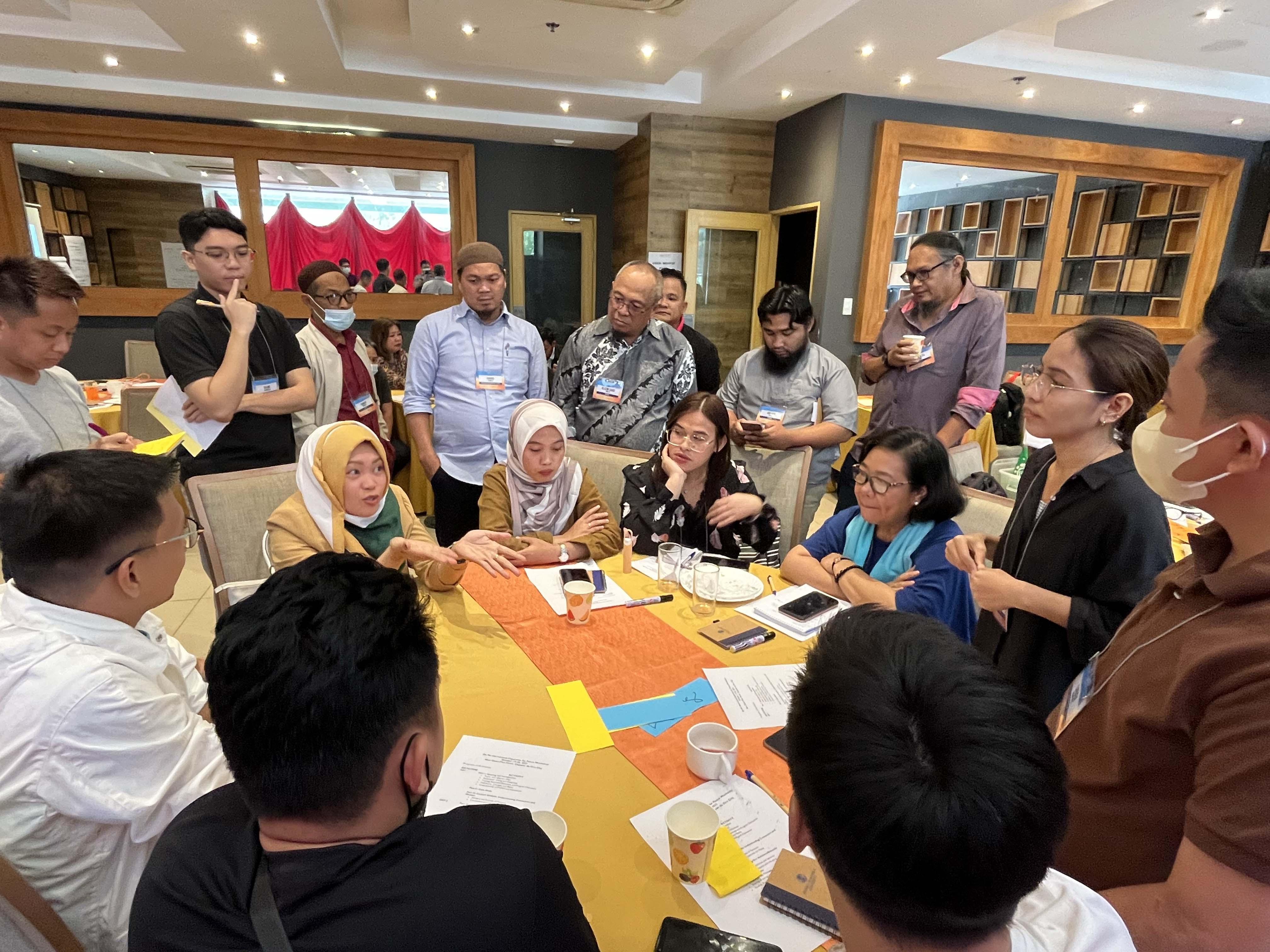 Awe and Moral Orientation
Awe and Moral Orientation
Awe is an inward, spiritual response to the sacred. It fosters humility and moral seriousness, shaping how people treat others and make decisions. Sacred texts can motivate both division and peace—depending on how they’re interpreted. Awe is more than reverence—it serves as a moral compass. It enables individuals to perceive their lives in relation to something greater than themselves, often inspiring ethical action.
One Sri Lankan participant reflected on this connection between spirituality and inner peace, saying, “We can get inner peace through doing pooja. Without trust in God and knowledge of His words, we can’t feel that happiness.”
This sense of awe can be a potent force in peacebuilding, particularly when grounded in teachings that emphasise compassion, justice and reconciliation. It invites individuals and communities to transcend personal grievances and connect with values that promote collective healing.
Expressing empathy and compassion. The most visible expression of faith lies in how we treat one another with dignity, kindness, and a deep recognition of our shared humanity. Humanitarian efforts that cultivate empathy can harness this powerful force to build peace. Empathy reveals itself through acts of service, forgiveness, and solidarity. It inspires people to care for their neighbours, support those in need, and seek mutual respect. Within faith communities, this isn’t merely a moral obligation—it’s a spiritual calling.
Navigating the Complexity of Faith
Religion can be idealised or vilified with little room for nuance. Some critics of the framework argue that we romanticise faith, glossing over its potential to divide. They’re not wrong to be cautious. The same spiritual teachings that inspire acts of compassion can also be twisted to fuel hatred. Sacred texts have been used both for healing and for harm.
If we want to build peace, we must understand the forces that shape people’s deepest motivations. That means engaging with religion as a living, evolving force. It means asking better questions, designing more inclusive programmes, and supporting leaders who work for justice within their own traditions.
Faith will not always be comfortable. But if we’re serious about achieving peace, we must be serious about understanding it.
A shared vision for peace
In a world increasingly shaped by metrics and material outcomes, it’s easy to overlook the intangible forces like faith that move people. Yet by acknowledging these unseen drivers, we open up space for deeper engagement in peace-building efforts—not only with our own beliefs, but with the beliefs of those around us.
Are we prepared to ask how conviction shapes us, our partners, and the communities we serve? What might change if we paused more often to pray not only for outcomes, but for peace itself? I believe God is sovereign over the whole world, but I also need to continue working for peace while trusting the love of Creator God who has called me to this work.
About the author
Dr Kathryn Kraft is the Global Research Technical Director for World Vision International. In her role, she coordinates global research strategy and capacity across the organisation. She has engaged in peacebuilding and conflict sensitivity work at the grassroots level; has supported institutional strengthening for local NGOs; and has led monitoring, evaluation and accountability in disaster management programmes. Dr Kraft holds a PhD in Sociology of Religion from the University of Bristol, UK and holds academic postings in the United Kingdom.
